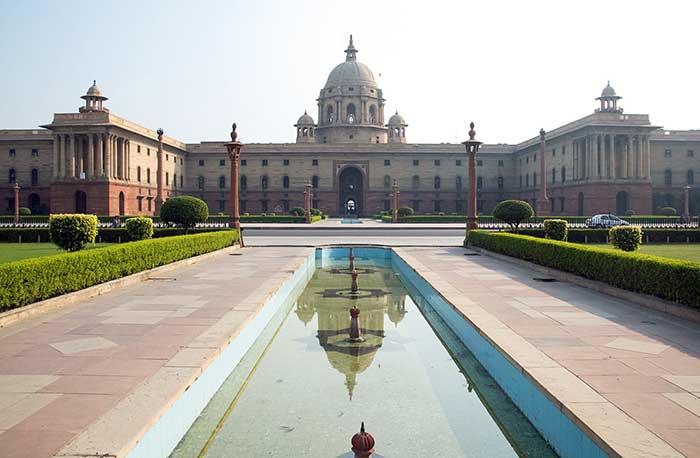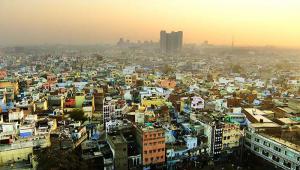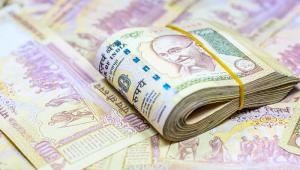india_government_building.jpg

The Indian government building in New Delhi. Credit: Laurie Jones
Figures released by the country’s government register 7.6% growth in the 2015-16 fiscal year, up from 7.2% the year before, with growth hitting 7.9% in the last quarter of the year.
India overtook China as the fastest-growing major economy earlier this year, and looks set to hold on to that position driven by output increases in sectors including financial, real estate and professional services, manufacturing and mining.
Alongside the growth figures, the government posted reductions in the deficit and increases in tax receipts.
“The above clearly indicate that... India continues to remain a bright spot in [the] world economy with robust macroeconomic and fiscal parameters,” a statement said.
India’s rise to the top has been helped by a slowdown in China’s growth as the country transfers to a more sustainable, service-based growth model.
In March, the country reported 6.7% growth in the first months of 2016 – its slowest growth rate in seven years.
Nevertheless, this acceleration in India’s growth surpassed expectations. Some observers are dubious about the veracity of the figures, raising concerns about measurement.
Craig Botham, emerging markets economist at Schroders, said: "The improvement is roughly in line with that seen in higher frequency data, though we still have our doubts over the level of growth. Industrial production, for example, was barely positive in Q1. In general, the rest of the economic data looks more consistent with a 6% growth rate than one approaching 8%.
"Concerns over measurement aside, momentum does seem to be improving and combined with recent legislative gains, this should provide reassurance that the economy is headed in the right direction."
The Indian government also announced yesterday that it had signed a $9.2m grant agreement with the World Bank’s Global Environment Facility.
The money will be used in low-cost initiatives that aim to improve the efficiency of bus services in select Indian cities.
“Rapid urbanisation and motorisation in Indian cities is resulting in severe congestion, deteriorating road safety and air quality and growing greenhouse gas emissions,” said Nupur Gupta, senior transport specialist and the bank’s team leader for the project.
“There is an urgent need to give priority to public transport and this project attempts to do so by showcasing some good practices in sustainable city bus services.”













